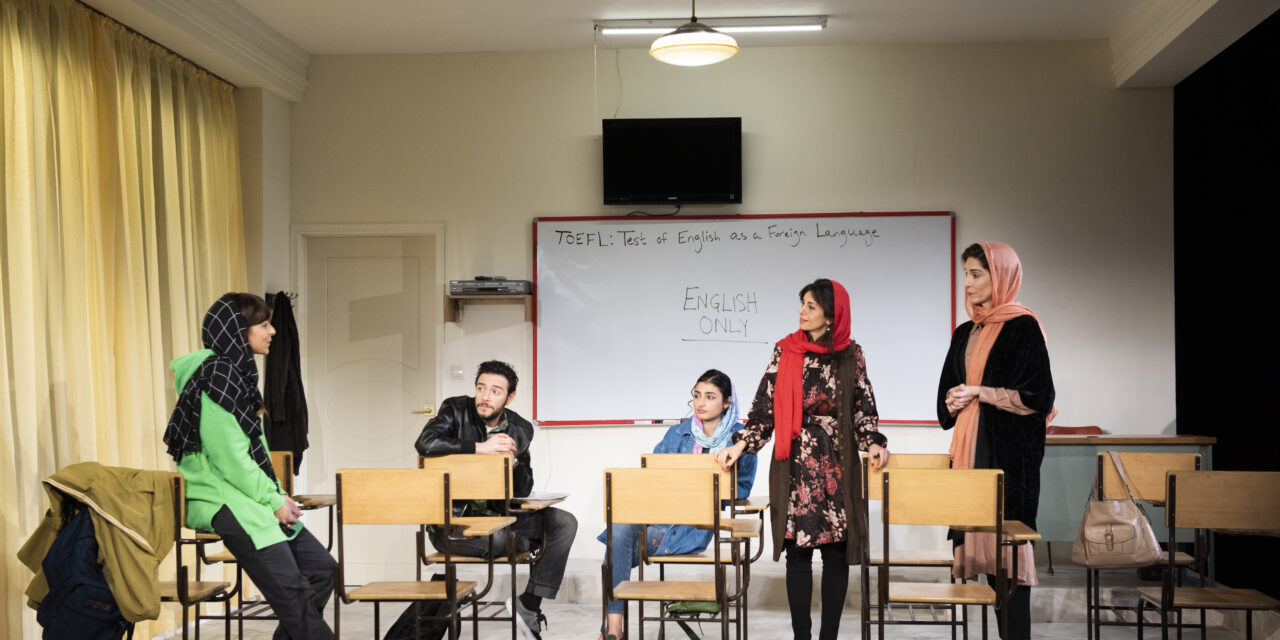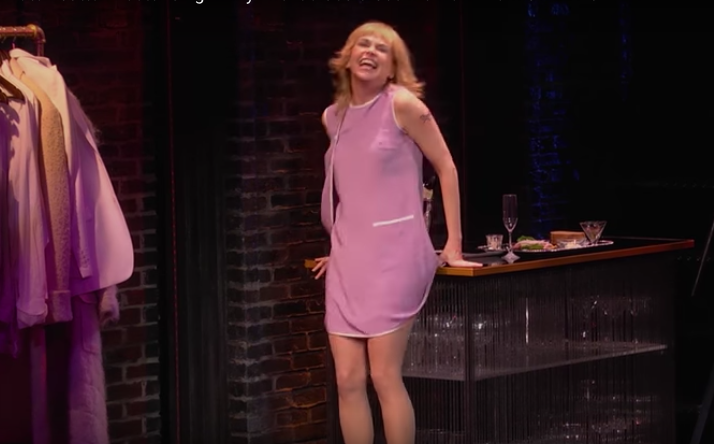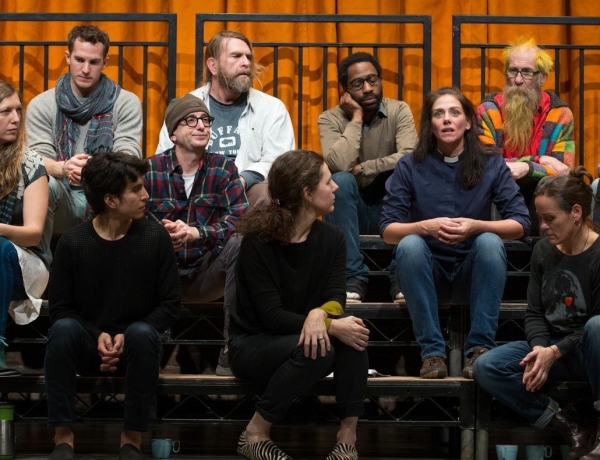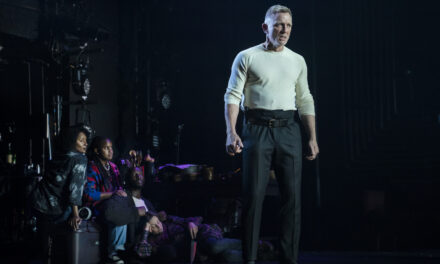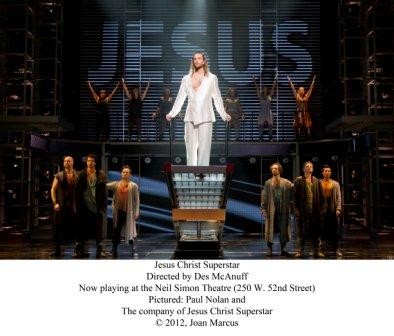By Marilyn Lester . . .
There’s a well-known expression, “a picture is worth a thousand words.” Similarly, the word “English,” the title of a superlative new play by first-generation Iranian-American playwright, Sanaz Toossi, conjures up a raft of thoughts about what it means to speak the lingua franca of the world. It’s a shrewdly engrossing work that runs deeper than the lens of humor that helps it glide through 22 revealing scenes—which in their visual impact adds to meaning. A coproduction of the Atlantic Theater Company and the Roundabout, English is one of those “must-see” plays that makes you think about the space you occupy in the world.
How important is the English language? Here’s a sobering fact: worldwide, airline pilots and those involved in the safety of getting planes in the air and down again must speak it. Think about the alternative. And English isn’t easy to learn; it has a lexicon of about 450,000 active words, twice as many as most of the 6,000 languages spoken in the world today. So, when four students gather in an Iranian classroom to learn English—the basis of the play—they’re serious about their undertaking. What’s being taught is TOEFL— the Test of English as a Foreign Language, a standardized exam that measures the English skills of non-native speakers; it’s essential, for instance, for visas, Green Cards and admission to universities in English-speaking countries.
A great deal of the world is bilingual, with English part of the educational curriculum in many countries. By contrast, only about 20% of the American population speaks two or more languages—we don’t need to. In 2008 Karaj, Iran, where the play is set, the stakes are high. At that time, Iran was in economic crisis amidst political unrest. Relations with the US, an enemy of the state, were tense. Overall, the atmosphere among Iranian citizens was full of anxiety and apprehension. Knowing English could offer opportunities, and an escape hatch outside the country if necessary. As a side note, there are eighty-six Iranian languages, which includes local dialects. The official language is Persian (Farsi), spoken by 53 percent of the population. In the region of Iran depicted, near Afghanistan, the lingua franca is Pashto. This fact is subtly indicated by the TOEFL school’s signboard, written in several different Iranian languages. We can deduce then, that multilingualism was not an unknown quantity to the students in the play.
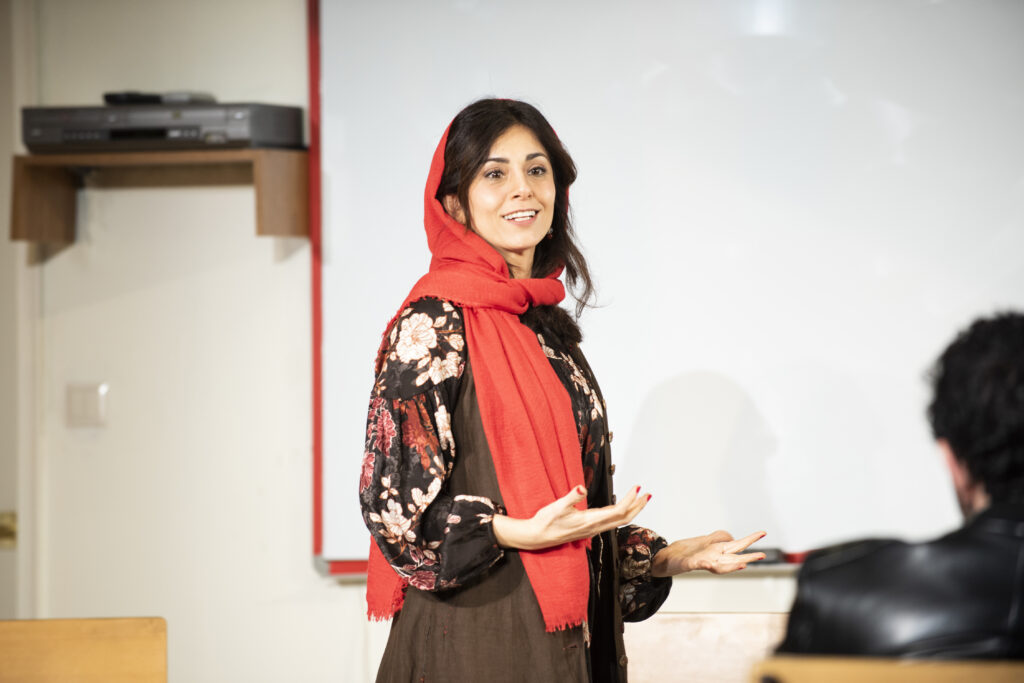
With the ominous words, “English Only” on the whiteboard of this TOEFL classroom, teacher Marjan (Marjan Neshat) guides her small group through the six-week course with word games, listening exercises and show-and-tell sessions, which fuel the humor in the text. Director Knud Adams has worked magic with his actors as they reveal their individual journeys, played in a rotating cube-like set, smartly devised by Marsha Ginsberg. Metaphorically, each view of the set is a window into the lives of each character. These fine actors handle accents and proficiency with such subtlety that it’s hard not to believe the reality of each. The journey of each is likewise artful in its unfolding. Teacher Marjan has formerly lived in Manchester, England for almost a decade, with an Anglicized name. Eventually we learn she’s returned to Iran because she grew tired of her life abroad—but she loves speaking English. Motivation is key to the unravelling of the plot, in which one by one the students are eliminated until, at the end, there is one.
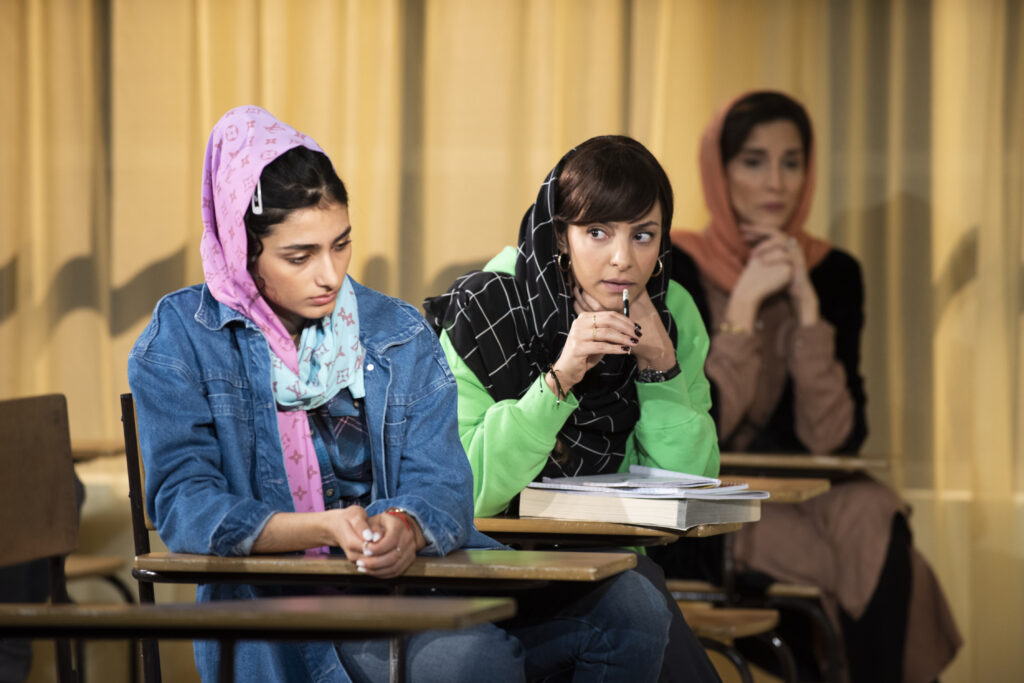

The oldest student, Roya (Pooya Mohseni), wishes to go to live with her son and grandchildren in Canada; she’s mistaken the word “visit” for a permanent invitation. When she grasps the difference, she drops out—and it’s sheerly heartbreaking. Elham (Tala Ashe), a tough character who wants to go to medical school in Australia, is a hard nut to crack. She doesn’t much care for English, and has already failed the test three times, a fact she hides. But English is a means to an end. Her relationship with Marjan is complex, and fraught. Several weeks into the course, Marjan asks her to leave. Goli (Ava Lalezarzadeh) is the youngest pupil, a sweet and quiet girl who wanted to speak English since she was a child. She’s the last student standing, acing the test with proficiency.
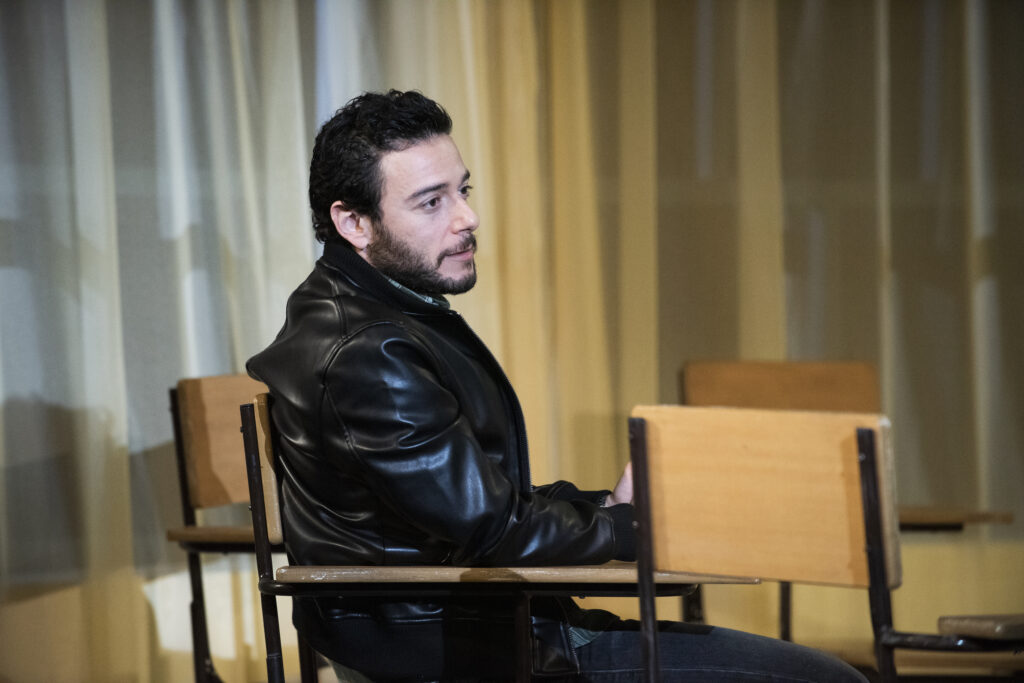

Perhaps the most complex of the characters is the sole male, Omid (Hadi Tabbal), whose accent is suspiciously American as is his proficiency in English. He doth protest too much about it, and voila! late in English we find out he was born in Ohio to naturalized Iranians and has spent the majority of his life there. There’s a subplot of flirtation with the older Marjan, but when Omid is forced to reveal his dual citizenship, quite near the end of the play, it comes as a betrayal, and he’s disqualified from the class. Why is he there to begin with? He maintains his lack of mastery of English till the end, which is clearly a denial in which he’s entrenched. In Iran, he says, he finds peace.
Omid holds a clue to the ultimate message of English, and that’s an individual’s sense of identity, displacement and belonging. Language is foundational to that. It’s a truism that’s known to anyone Irish, for example, and which was brilliantly exposed in Brian Friel’s 1980 play Translations about the English empire’s cruel suppression of the Irish language. To this day, Irish cultural identity is preserved in the Gaeltacht, small pockets of Ireland sanctioned by the government where it’s “Irish Only.” During English, it’s Omid who voices a subtext of this theme when he says, “It’s a miracle to belong anywhere.” It’s said that one has truly mastered another language when the speaker can think in it. For most native-born Americans, the various journeys of the characters in English should be an eye-opener. It’s a window into aspirations, hopes, dreams and the exploration of a true sense of self. In its wisdom, English is the stuff of enlightenment.
On-point costuming is by Enver Chakartash, with lighting by Reza Behjat and sound design by Sinan Refik Zafar.
English plays through Sunday, March 20 at the Atlantic Theater Company Linda Gross Theater (336 West 20th St., NYC). Running time is 1 hour, 45 minutes without intermission. For tickets and more information, go to www.atlantictheater.org or call 646-989-7996.
Photos: Ahron R. Foster
Lead Photo:
(L-R) Tala Ashe(Elham),Hadi Tabbal (Omid),Ava Lalezarzadeh( Goli),MarjanNeshat (Marjan) andPooya Mohseni (Roya)


